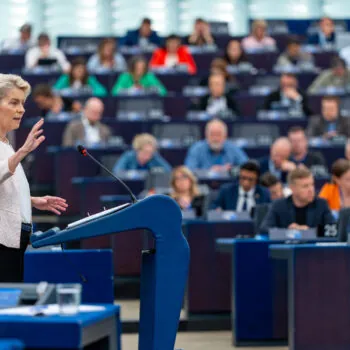On Friday, the Bratislava summit of the EU27 (all EU member states minus UK; hence an informal summit without binding decisions) took place. Much has been written about it beforehand and indeed the single most important point was to demonstrate unity after the Brexit shock.
Did it work? Like so often when talking about the EU, the answer must start with a “Well, it depends….”.
The big picture: demonstrate unity
- European leaders were united in the opinion that the Bratislava summit should demonstrate ‘unity’. Given that positions are diverse and even contradictory in some policy areas, unity here means: commitment to the broader idea of European integration and a reassurance that Brexit would not start a domino effect of the EU falling apart
- Did it work? In general, yes. Nobody wants to give up the European project while all agree that it must be further developed. Merkel and Hollande, for instance, held a common press conference, a novelty after a European summit, that was meant to demonstrate unity. Merkel spoke of a “spirit of Bratislava”, meaning a spirit of cooperation that more than before rests on the ability to find compromise.
- BUT: the message of unity was only partly convincing, because the disagreements in specific policy areas (migration, economic development, …) could not be completely overcome. Renzi, for instance, refused to join the press conference with Merkel and Hollande, stating that “I cannot hold a press conference with [them] if I don't agree with their positions on immigration and the economy”.
A more positive agenda
- Leaders also wanted to send a positive signal with regard to specific policy areas. For that reason, less controversial topics were discussed which have a more positive standing among the European public: digitalisation, internet, growth and jobs, and especially a youth agenda.
Refugees, imposed quotes, etc.: how to overcome the faultlines?
- Poland, Hungary and like-minded member states brought the terms ‘voluntariness’ and ‘voluntary solidarity’ (rather than ‘solidarity’) to the debate – terms that clearly go against the perceived imposition of refugee quotas.
- These ideas were received less negative by other leaders than before. What could ‘voluntary solidarity’ mean? It could be a new mechanism where those countries that do not want to take refugees might contribute with other means, e.g. with border guards for the EU’s external borders, or a higher contribution to the development fund for African countries.
- Merkel called this a “a positive approach” – an indication that there may be a resolution to the long ongoing problem? It seems European leaders desperately want to find a solution because they have realised that the quarrels are not healthy for European unity.
And Brexit?
- Some called Brexit a healthy shock’ without whom Bratislava had never happened. That being said, all participants regretted Brexit: the UK will be remembered with vigorous positions on free trade and free market friendliness as well as reducing bureaucracy. On the contrary, few spoke of the UK as an obstacle/brake for European integration
- Bratislava witnessed a broad wish to tie the UK closely to the EU – even if many (in particular Juncker) stay firm: access to the internal market only without barriers to the freedom of movement
- however, speaking in strong terms was Slovakian PM Fico, who stated that Europe will make Brexit “very painful” to the UK
Conclusions
Bratislava witnessed a return of the Franco-German engine. Differently from before, the duo was not viewed with suspicion but most leaders seemed to welcome that someone was willing to have a firm hand on the tiller again.
Leaders agreed on a Bratislava declaration and Roadmap. Contents:
- Declaration: many lofty statements on unity and commitment
- Roadmap topics: Migration & external borders (never again uncontrolled migration; back to Schengen), internal security (support in fighting terrorism, information sharing), external security (strengthen EU external security and defence – December European Council to debate topic), economic and social development/youth (Juncker investment fund, fight youth unemployment)
Way ahead: another EU27 summit scheduled for the beginning of 2017 in Valletta; March 2017 60th anniversary of Treaty of Rome celebrations will round off process launched in Bratislava and set out orientations for common future
What did NOT happen at Bratislava? There were rumours about potential agreements on future EU military cooperation prior to the summit – conclusions were not far-reaching in this respect.



